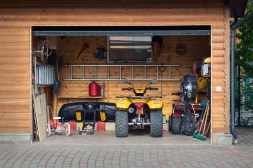Essential Tips for Packing Food for Your Next Backpacking Adventure
Backpacking is an incredible way to explore the great outdoors, but it also comes with its own set of challenges, especially when it comes to food. Knowing how to pack and store food properly can make a significant difference in your adventure. Not only will you be able to enjoy nutritious meals on the trail, but you’ll also minimize waste and lighten your load. Here are essential tips to help you pack food for your next backpacking trip.
Choose the Right Foods
The first step in packing food for backpacking is selecting the right types of foods. Opt for lightweight, non-perishable items that are nutrient-dense and easy to prepare. Some great options include dehydrated meals, energy bars, nuts, dried fruits, and instant oatmeal. It’s advisable to avoid fresh produce as they can spoil quickly and add unnecessary weight.

Plan Your Meals Wisely
Meal planning is crucial for any backpacking trip. Consider how many days you’ll be out on the trail and plan meals accordingly. A good rule of thumb is to pack around 1-1.5 pounds of food per person per day. Break down each day’s meals into breakfast, lunch, dinner, and snacks so that you’re not overpacking or underpacking any particular category.
Use Efficient Packaging Techniques
To maximize space in your backpack, repack items from their original containers into resealable bags or lightweight containers. This not only saves space but also reduces waste from bulky packaging materials. Make sure to label each bag with its contents and meal time (e.g., Breakfast Day 2) so you can easily grab what you need without rummaging through your gear.
Store Food Properly
Proper storage is key when it comes to preserving the quality of your food on a backpacking trip. Use airtight containers or vacuum-sealed bags to keep moisture out and prevent spoilage or pest attraction. Additionally, keep fragrant foods away from other items as the smell can attract wildlife.
Consider Cooking Gear
Depending on your meal preferences, consider whether you’ll need cooking gear like a portable stove or cookware while hiking. If you’re going minimalistic with no cooking involved (just snacks), then focus more on ready-to-eat foods like jerky or nut butter packets that require no preparation at all.
Packing food correctly for a backpacking adventure requires careful thought and preparation but pays off with delicious meals on the trail. By choosing suitable foods, planning ahead, using efficient packing methods, storing them properly while considering cooking needs—you’re setting yourself up for a successful outdoor experience.
This text was generated using a large language model, and select text has been reviewed and moderated for purposes such as readability.


